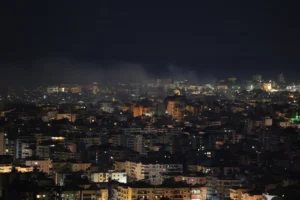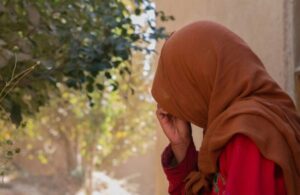KABUL (SW) – Close to 500 development projects worth around 176 billion afghanis are in limbo amid suspension of fundings by donors and international community following the establishment of the Islamic Emirate in Afghanistan.
According to the information collected by Salam Watandar, the implementation of 492 development projects in Afghanistan, whose total value reaches more than 176 billion afghanis, has already been stopped.
The investigations that Salam Watandar has done about these development projects show that these 492 projects, which include thousands of other sub-projects, were financed by the international community, and their implementation work was included in the budget document for the fiscal year 1400 and their practical work had begun, but with the re-emergence of the Islamic Emirate and the withdrawal of the international community, these projects have been left unfinished.
Among the number of projects that were included in the budget of the fiscal year 1400, only 22 projects were new and 470 projects were transferred from previous years to the year 1400.
According to the information of Salam Watandar, only 57 billion afghanis or 32% of the total costs that were considered for these projects have been used.
Although the work of all these development projects remained half-finished due to political developments in the country, but the officials of the Ministry of Economy say that they are trying to implement some of these projects using domestic revenues.
The National Citizenship Charter Program was one of these projects, which included 6,500 sub-projects, and its implementation costs were paid by the World Bank, but now these projects are stopped. The National Citizenship Charter Program was started in 2016 and was supposed to be implemented in three stages until 2026.
The main goal of this program was to provide basic health services, education, electricity supply, water management, connecting cities and villages, and building small infrastructures for agriculture, which was designed to adapt to less developed areas and was financed by the Afghan government and the World Bank.
Based on the information obtained by Salam Watandar, there is currently no plan to restart these projects or to complete half-finished projects, and the World Bank has not yet responded positively to the requests of the Islamic Emirate government.
It is said that the salaries of many employees who worked in the framework of the National Citizenship Charter program have not been paid, and the Ministry of Rural Development and Rehabilitation of the Islamic Emirate hopes that the work of these projects will be restarted by the World Bank.
According to the findings of Salam Watandar, most of the projects whose implementation had progressed more than 50%, are now subject to destruction and if neglected, all the capital spent will be wasted.
Salam Watandar has also reviewed the half-finished projects of 12 provinces that were financed by the international community. These projects are related to the financial years of 1399 and 1400 and their implementation work started in those years.
One of these provinces is Bamyan, where the implementation of 31 projects worth 30 billion 503 million 580 thousand 791 Afghani had started and 44.14% of the work has been implemented, but these projects have been stopped. In addition to this, the work of nearly 100 projects related to the National Citizenship Charter program has been stopped in this province.
Daikundi is another province where the implementation of about 110 projects worth one billion Afghanis has been stopped.
The state of these suspended projects in different provinces
About 250 development projects worth 50 million US dollars have been stopped in Ghazni, and with the stoppage of these projects, nearly four thousand people have become unemployed.
Ghor is another province where 14 projects have been stopped, the total value of which is 17 billion afghani. The work of most of these projects has progressed nearly 60%, and with their completion, 18,280 people could benefit directly.
In Herat, 457 projects worth 716 million afghanis are currently suspended. At least 660 projects have been stopped in Kapisa, as a result of which 1,210 people have become unemployed.
In Laghman, 10 development projects have been stopped.
Maidan Wardak is another province where about 319 projects worth 529 million afghanis are currently stalled, and another 119 projects are also stalled in Nuristan.
In addition to these, 85 projects worth 224 million afghanis have been stopped in Panjshir, as a result of which 971 people have become unemployed, and in Parwan, the work of 31 projects worth 31 million dollars has been stopped. Work of 489 projects worth 300 million afghanis has been stopped in Baghlan, as a result of which 220 people have become unemployed.
Based on the information collected by Salam Watandar, out of the 12 investigated provinces, only in five provinces (Ghazni, Ghor, Kapisa, Panjshir and Baghlan) 7,400 people have become unemployed as a result of the suspension of the projects. Tens of thousands of people have become unemployed due to development projects across the country.
Who were the sponsors?
Officials in the Ministry of Finance of the Islamic Emirate told Salam Watandar that nearly 30 large development projects that have been stopped were financed by the World Bank.
In addition, organizations such as the United Nations Children’s Fund (UNICEF), the United States Agency for International Development (USAID), the United Nations Development Program (UNDP), other organizations related to the United Nations, and a number of countries were financing the now half-finished projects.
The implementation and completion of these projects, which have a direct impact on the country’s economic situation, has been stopped, while millions of dollars of humanitarian aid from the international community have continued to the country after the Islamic Emirate was restored.
It should be noted that the 492 large development projects that Salam Watandar discussed in this report were among the projects whose implementation work was included in the budget document for the fiscal year 1400 (2021) and the projects reviewed in the provinces were among the projects whose implementation work was carried out in the years 1399 (2020) and 1400 (2021) had started.
ENDS






